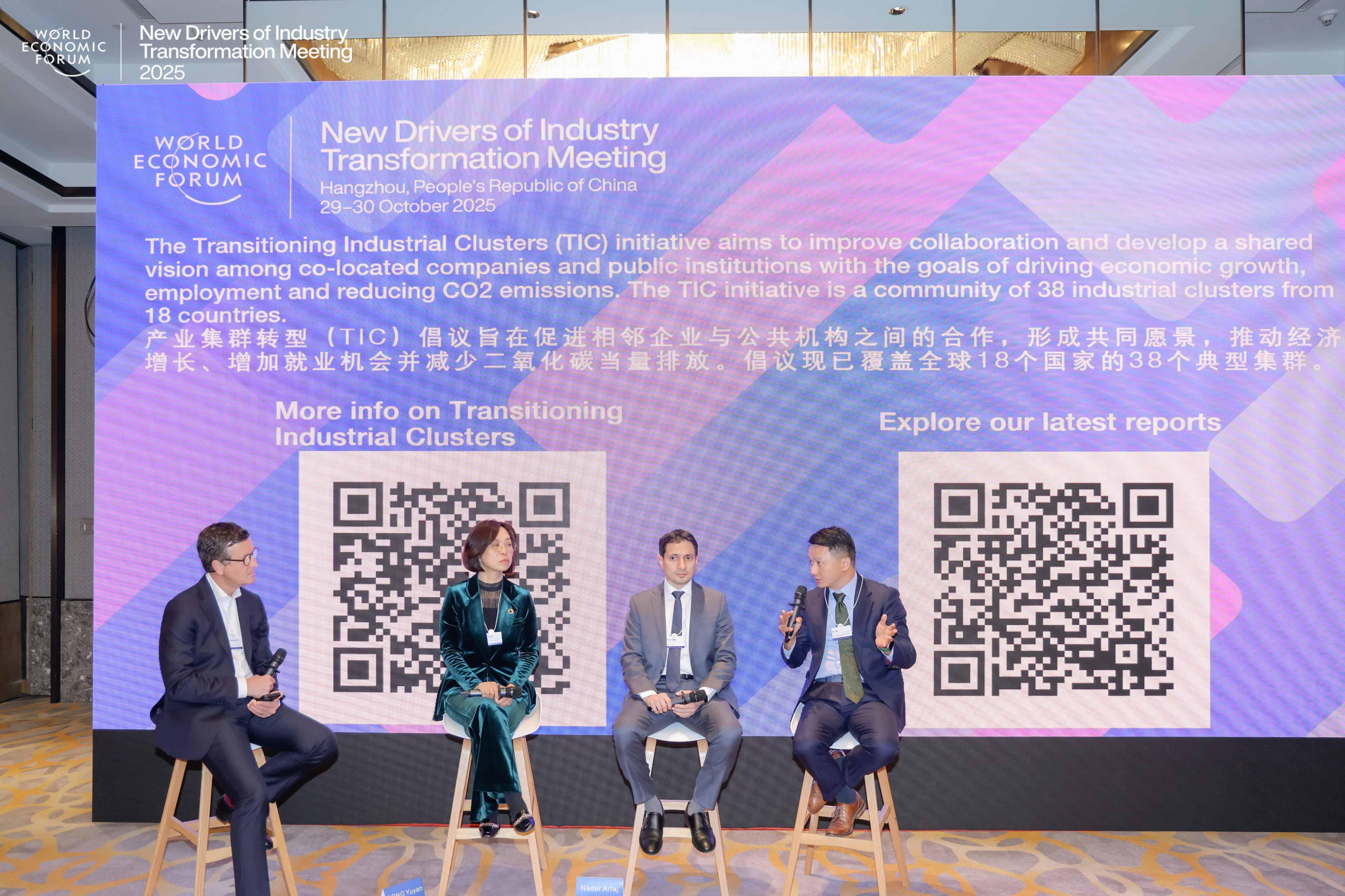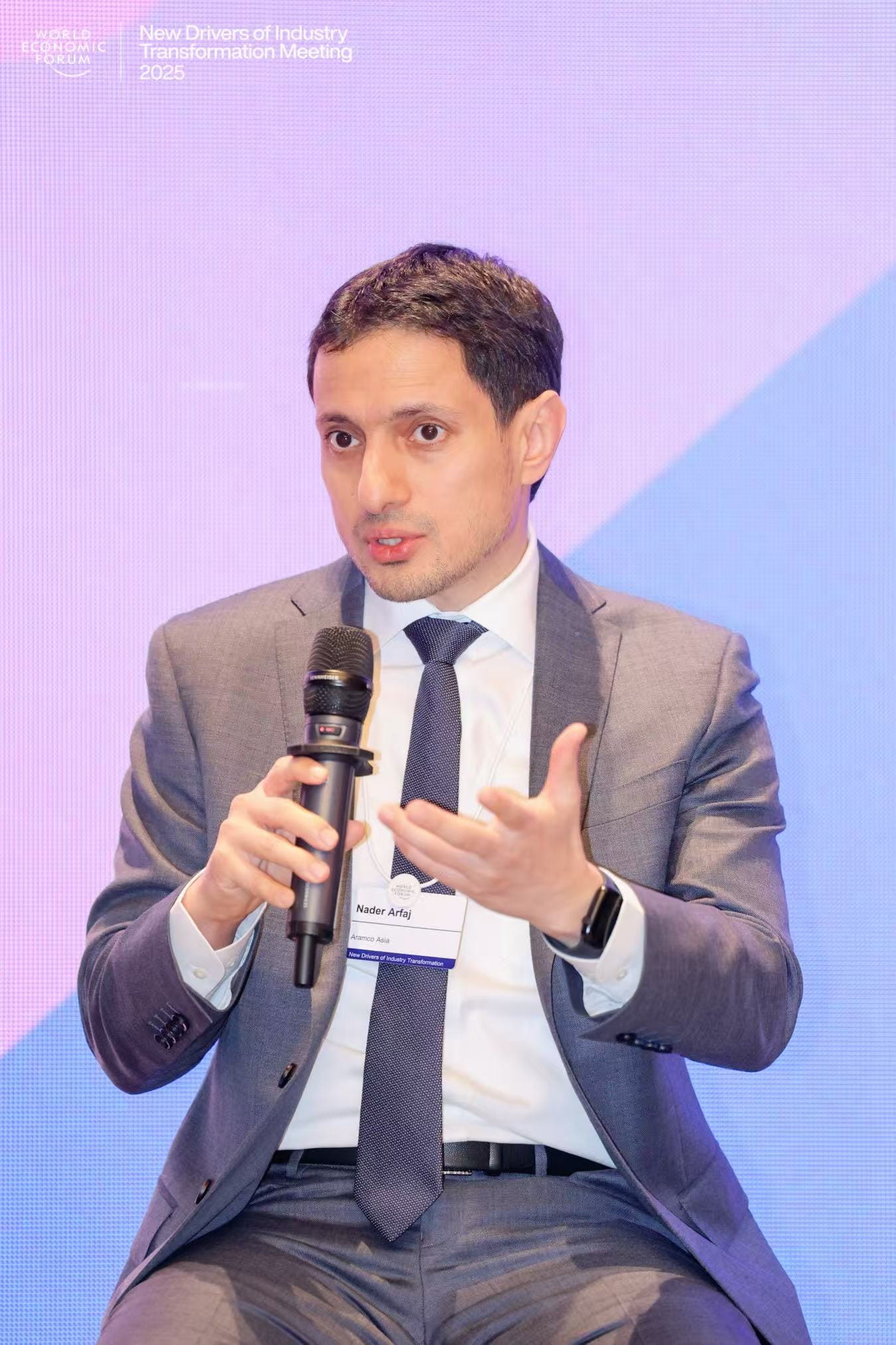China Managing Director addresses low-carbon energy solutions, industrial cluster development at World Economic Forum

China Managing Director Nader Al Arfaj, joined the panelists for the “Industrial Parks: A Blueprint for Transformation” session at the World Economic Forum New Drivers of Industry Transformation meeting on October 29 in Hangzhou.
China Managing Director Nader Al Arfaj, joined the panelists for the “Industrial Parks: A Blueprint for Transformation” session at the World Economic Forum New Drivers of Industry Transformation meeting on October 29, 2025 in Hangzhou, Zhejiang Province to discuss Aramco’s pioneering work in low-carbon energy solutions and industrial cluster development.
Centered on the topic of industry transformation, technology innovation and cross-sector collaboration, the event brought together hundreds of participants from China and abroad to facilitate in-depth discussion on major issues from global perspectives.

China Managing Director Nader Al Arfaj
Throughout the panel discussion, Al Arfaj expounded Aramco’s new opportunities for industrial transformation and collaboration.
He noted, “Clear pathways are required to develop industrial hubs. Including developing incentives, and fostering cross sector collaboration.”
Al Arfaj highlighted Aramco’s pioneering programs contributing to industrial transformation, and offering win-win opportunities between Aramco and its local and international partners, including:
- King Salman Energy Park (SPARK): The energy hub can become a 21st century platform for the energy sector and aims to capture full economic value from the energy value chain in Saudi Arabia and the region. It is expected to contribute more than $6 billion to Saudi Arabia’s GDP annually and create up to 100,000 direct and indirect jobs at maturity.
- Taleed: The program supports scalable and sustainable job growth for Saudi SMEs, focusing on partnerships, business development, and investment attraction. In 2024, Taleed program helped over 800 SMEs progress toward carbon neutrality.
- Namaat: The program aims to establish strategic partnerships that drive Saudi Arabia's economic, supply chain and industrial investment diversification and expansion.
As examples, he mentioned the joint venture among Aramco, Baosteel, and PIF to establish Saudi Arabia’s first integrated steel plate manufacturing complex. Once completed, the facility is expected to have the capacity to produce 1.5 million tons of steel annually, by using natural gas and hydrogen, which emit lower-carbon emissions compared to conventional fuels.
Speaking on Aramco’s successful practices in low-carbon energy solution, Al Arfaj said, “Aramco is developing one of the world’s largest CCS hubs, with targeted capacity of 14 Mt CO2/year by 2034.”
The Jubail CCS hub is on track for 2027, enhancing CO2 capture and storage efforts. Aramco also collaborates on ammonia cracking technology and delivered three blue ammonia shipments, advancing low-carbon energy solutions.
“This approach allows Aramco to keep supplying the energy to the world and our industry needs today, while steadily reducing carbon footprint of how that energy is produced and used.” Al Arfaj concluded.
Al Arfaj was invited as a guest of honor by World Economic Forum for the two-day event, where he also attended meetings and site visits to explore ways for future industrial collaboration.

.jpg?cx=0.5&cy=0.5&mw=10)

